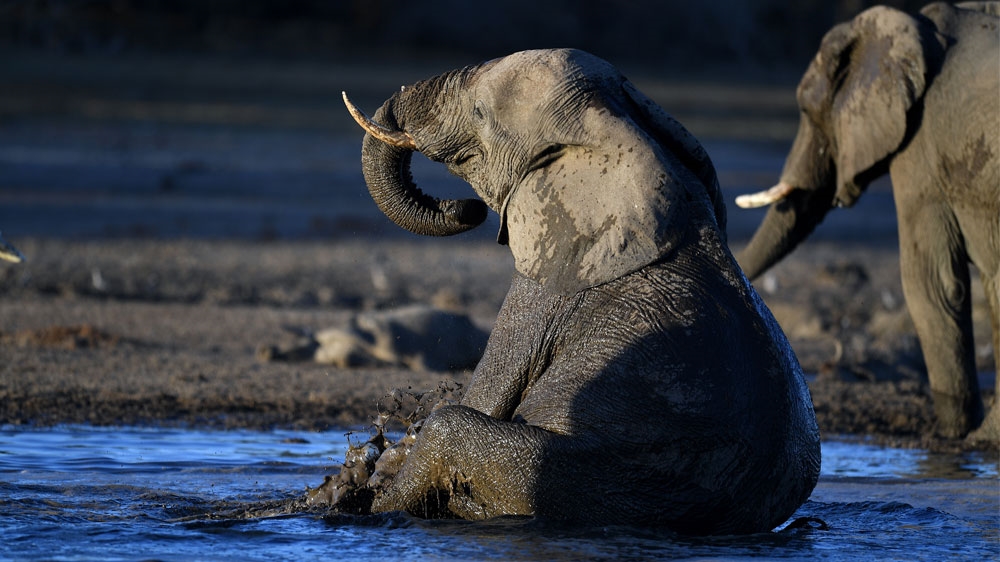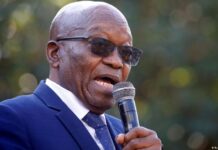Licences to hunt 60 elephants sold, the first to be allowed since President Masisi scrapped a blanket ban on hunting.
Botswana, home to the world’s largest elephant population, has held its first major auction for trophy elephant hunting quotas since scrapping a hunting ban last year.
Six licences to hunt a total of 60 elephants were auctioned on Friday, the first to be allowed in the southern African country since President Mokgweetsi Masisi revoked a five-year moratorium in May, raising the ire of conservationists.
The one-hour sale was conducted by a local firm, Auction It Botswana, from the premises of the Ministry of Environment, Nature Conservation and Tourism in the capital Gaborone.
“Seven hunting packages, of 10 elephants each, were available for auction. Only one (package) was not sold as no bidders met the reserve price of 2 million pula ($181,000),” said Adrian Rass, managing director of Auction It.
“The six (packages) were sold for a total price of 25.7 million pula ($2.3m).”
Africa’s overall elephant population is declining due to poaching but Botswana, home to almost one-third of the continent’s elephants, has seen numbers grow to 130,000 from 80,000 in the late 1990s.
Botswanan officials say hunting is necessary to ease conflict between animals and humans, especially farmers who have seen their crops and infrastructure destroyed by elephants roaming outside their feeding zones.
Masisi’s decision to lift the hunting ban last year was highly praised by local communities but derided by conservationists.
“Elephants have killed a lot of people and destroyed livelihoods. I think government is doing the right thing in reducing their numbers,” Tiro Segosebe, a Gaborone resident whose home village of Maun is one of the areas most affected by the human-wildlife conflict, told Reuters news agency.
‘Deeply concerning’
The 2020 hunting season is expected to start in April.
The government said hunting would be “controlled” and confined to areas most impacted by “human-wildlife conflict,” a reference to elephants roaming off game parks and into communities.
Environmentalists are divided on the best means to manage the conflict, with some fearing licensed hunting could fuel demand and thus encourage even more illegal poaching.
Audrey Delsink, Africa’s wildlife director for the global conservation lobby charity Humane Society International said: “The Botswanan elephant hunting auctions are deeply concerning and questionable.”
“Hunting is not an effective long-term human-elephant mitigation tool or population control method,” she told AFP news agency from neighbouring South Africa.
Neil Fitt, who heads the Kalahari Conservation Society in Botswana, said hunting was a new source of revenue for the country but cautioned it had to be practised “ethically and properly”.
The killing of “Cecil the Lion” four years ago by an American tourist in Zimbabwe sparked international uproar, and in 2019 Botswana banned two professional hunters who shot dead a research elephant and then tried to hide the evidence.













![Hotstar Premium Cookies 2019 [*100% Working & Daily Updated*] Hotstar Premium Cookies 2019 [*100% Working & Daily Updated*]](https://tahav.com/wp-content/uploads/2019/11/Hotstar-Premium-Cookies-Free-100x70.jpg)



